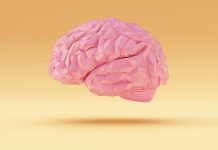
A groundbreaking study has brought new hope to the fight against dementia, suggesting that older adults with high blood pressure might reduce their risk of developing the condition by taking blood pressure-lowering medications.
High blood pressure, or hypertension, is widespread among older individuals, posing risks for heart disease, stroke, and possibly increasing the chances of dementia—a term that encompasses various types of cognitive decline, including Alzheimer’s disease, the most prevalent form of dementia.
This decline in brain function can significantly affect a person’s daily life and overall well-being.
In an extensive analysis involving more than 34,000 seniors, researchers aimed to uncover the impact of antihypertensive drugs on dementia risk.
Participants were categorized into three groups: those with untreated high blood pressure, those managing hypertension with medication, and those without hypertension.
After several years of observation, the study unveiled intriguing results:
- Individuals with untreated high blood pressure faced a higher risk of dementia than those with normal blood pressure levels.
- Remarkably, participants using medication to control their hypertension were less likely to develop dementia compared to those with untreated high blood pressure.
- There was an unexpected finding that the dementia risk for those on blood pressure medication was similar to those without hypertension, indicating the potential protective effect of these medications.
These insights lead to an important consideration: managing hypertension through medication may offer dual benefits, safeguarding not just the heart but also the brain.
However, it’s crucial to recognize that this study identifies a correlation rather than a direct cause-and-effect relationship between blood pressure medication and reduced dementia risk.
The findings encourage further exploration into how hypertension treatment might contribute to dementia prevention.
For those living with high blood pressure, this research underscores the necessity of collaborating with healthcare professionals to devise an effective management plan, which could include medication alongside lifestyle adjustments like healthy eating, regular physical activity, and avoiding tobacco.
This research not only shines a light on a potential pathway to reduce dementia risk but also reinforces the broader message that managing one’s health, particularly blood pressure, is vital for maintaining cognitive function into older age.
The implications of this study are promising, indicating that interventions to control blood pressure might be a key strategy in the broader effort to combat dementia.
While additional research is needed to fully understand the mechanisms at play, this study offers hope and a potential preventive measure for those looking to protect their brain health as they age.
The detailed findings of this research are available in JAMA Network Open, providing valuable insights for both the medical community and the public on the connection between blood pressure management and dementia risk.
If you care about blood pressure, please read studies about unhealthy habits that could increase high blood pressure risk, and eating eggs in a healthy diet may reduce risks of diabetes, high blood pressure.
For more information about brain health, please see recent studies that blueberry supplements may prevent cognitive decline, and results showing higher magnesium intake could help benefit brain health.
Copyright © 2024 Knowridge Science Report. All rights reserved.



